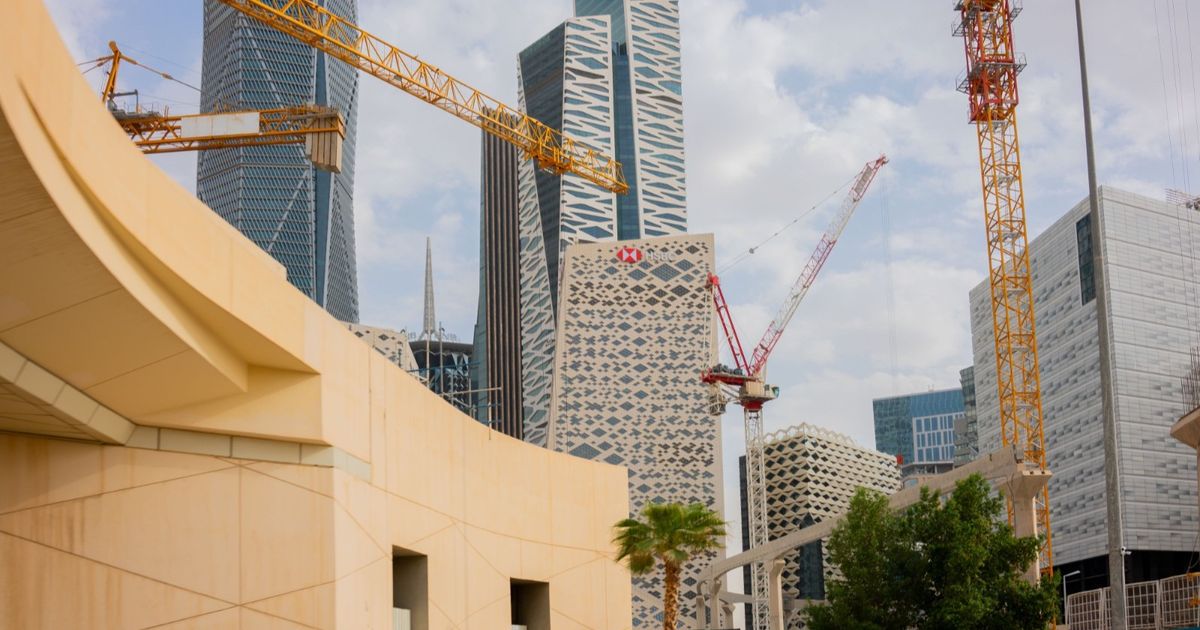Saudi Arabia strengthens its efforts to attract high -frequency trading companies, a campaign that has attracted senior players such as “Citadel Securities” and “Hudson River Trading”, at a time when the kingdom seeks to improve the activity in the largest stock market in the Middle East. The Saudi group “Tadawul” works with some of the fastest and most uninterrupted high -frequency trading companies to collect its views as part of the restructuring of the financial derivative market, according to informed sources. The Saudi Stock Exchange Operator has also expanded its international promotional campaigns to include Asian markets such as Japan and India, along with the United States and Europe, according to people who asked not to reveal their identity due to the privacy of information. US companies that test their algorithms in Riyadh are already accelerating. ‘Citadel Sikioretz’ and ‘Hadson River Trading’ seeks to expand their operations in Saudi Arabia, while Tower Research Capital is among the market industry testing their algorithms on the stock exchange, according to some sources. Companies have not disclosed the details of their activities in the Saudi market and do not appear among the official market makers. However, her participation indicates that even most international players depending on the high -speed implementation of orders deepen their presence in the kingdom. A spokeswoman for “Costale Skytus” and “Hadoson River Trading” refused to comment, while representatives of “Tower Research” did not respond to the comments requests. Saudi Arabia has begun to communicate with quantitative trade companies on the basis of algorithms in collaboration with the first public offering of Aramco with a value of $ 26 billion in 2019, and since then, this trend was in harmony with the “Vision 2030” aimed at expanding financial markets and increasing foreign participation. Infrastructure development in 2023 has launched the technology unit in Tadawul, known as “flash”, joint hosting services that enable trade companies to place their servers next to the matching engine on the stock exchange, which is a basic structural upgrade for high -frequency trading strategies. Tadawul also used the Financial Technology Supply (PICO) to implement infrastructure and link the stock exchange to other markets. The Saudi Stock Exchange has also drawn up a division for managing relations with international investors, which has contributed to strengthening ties with clients, including quantitative traders, hedge funds and high -frequency trading companies, according to the CEO of Mohamed Al -Rumaih. “We already have several agents of them on the stock exchange of the United States, Europe and the United Kingdom, and we see that the biggest growth opportunity is from Asia now,” Al -Rumaih said. ‘Trading’ The largest wave stock exchanges are the ‘trade’ of the largest stock exchange in the Gulf, with the average trading volumes of about $ 1.7 billion per day to end April, according to the stock exchange. Tadawul shares also trade one of the highest price assessments between international stock exchange operators, which reflects the investor bets on an increase in trading volumes in accordance with the broader economic pursuit of the kingdom. The arrow is traded with a repetition of 34 times, that is, much higher than companies such as “CME Group Inc” and “Deutsche Boreese”. Since the introduction of joint hosting services, businesses with a high frequency ‘have become the first category’ in the kingdom, according to the Dolls, CEO of ‘WATHFAT’. Limited liquidity limits the expansion of high -speed trading, the Dempage disclosure: “We are now in the midst of developing the next phase of joint host services, and expanding to target the second and third categories”, without mentioning specific businesses. According to stock market officials, high -frequency trading is up to 25% of daily trading volume in ‘trading’, which is much lower than the average in the global stock exchanges. For example, Nasdaq says about 50% of US trading volume in the United States is caused by this type of activity. In addition, the depth of the market and the recycling rate are still low in world standards, limiting the ability to expand major electronic trading strategies, and to solve this challenge, “trading” used companies such as “Morgan Stanley Saudi Arabia” and “Merrill Lynch Saudi Arabia” as market makers to improve the liquidity and prices. Therefore, a key factor in these efforts is to attract more frequency trading companies, as these businesses can use their own trading books without restrictions that apply to banks. The efforts of the kingdom to increase “Tadawul” trading products also want to introduce other initiatives, including more funds distributed on the stock exchange that follows Saudi shares, and also attracts more businesses to start in the market. Products such as futures and contracts associated with indicators are obtained in Saudi Arabia, which gradually expand the available tools for quantitative and multi -aid traders. The group is expected to support growing products and restructuring of the derivatives division more complicated strategies in high -frequency trading, such as utilizing the price differences between the financial and derivative markets. “With the completion of the infrastructure, we expect the liquidity to rise strongly … Within five years, the trading volumes in the market may look completely different,” says Jarud Yuster, founder and CEO of Pico.
The “high -frequency” speculation traders in Wall Street flow to the Saudi Stock Exchange
